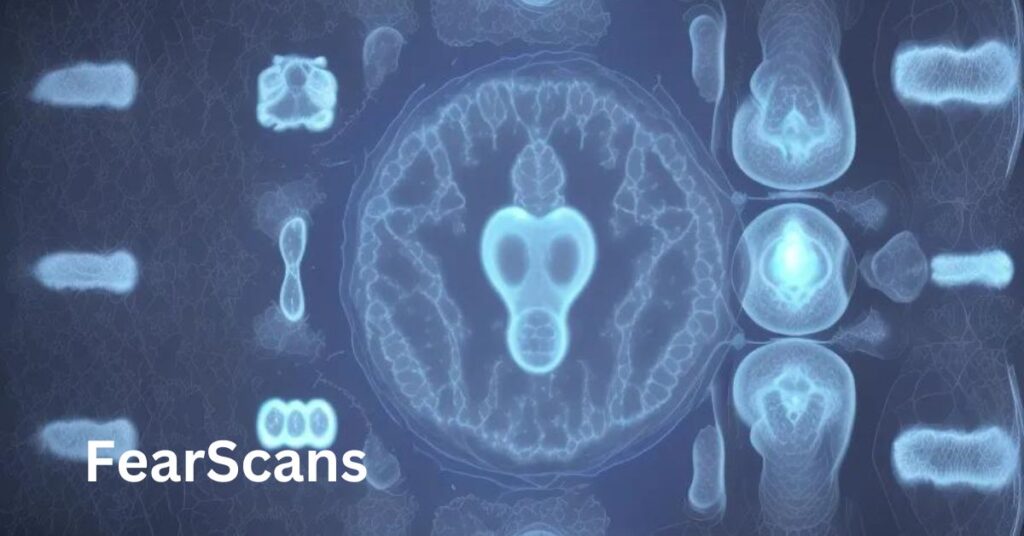FearScans: Understanding, Managing, and Overcoming the Anxiety of Medical Scans

In the realm of medical diagnoses, the term “FearScans” embodies a common and profound emotional response experienced by many individuals facing health concerns. This article delves into the multifaceted aspects of “FearScans,” offering a comprehensive examination of the anxieties related to medical scans, their implications, and practical strategies to manage and overcome these fears.
The term “FearScans” is a poignant reflection of the anxiety and dread often associated with medical imaging procedures. These scans, which include X-rays, MRIs, CT scans, and PET scans, are crucial tools in diagnosing and monitoring various health conditions. Despite their importance, the process of undergoing these scans can be fraught with emotional challenges.
The Emotional Impact of Medical Scans
Medical scans play a vital role in modern medicine, providing detailed images that help doctors diagnose and treat illnesses. However, the process of preparing for and undergoing these scans can evoke a range of emotions, from apprehension to outright fear. The term “FearScans” captures this emotional complexity, reflecting the anxiety that many patients experience.
The Root of Anxiety: Understanding the Fear
Fear surrounding medical scans often stems from several sources:
- Fear of the Unknown: Not knowing what to expect during the scan can lead to heightened anxiety. Patients may worry about the procedure itself, its duration, and any potential discomfort.
- Fear of Diagnosis: The scan results could reveal serious health issues, which can be a daunting prospect. The uncertainty of what the scan might uncover can create significant emotional distress.
- Fear of Radiation Exposure: For scans that involve radiation, such as X-rays and CT scans, patients might be concerned about potential long-term effects of radiation exposure.
- Fear of Claustrophobia: Certain scans, like MRIs, require patients to remain still in enclosed spaces, which can trigger feelings of claustrophobia.
The Role of FearScans in Cancer Diagnosis and Treatment
Ladonna’s poignant description of her cancer experience—“Pain, fear, scans, treatment, Generation Cancer!”—illustrates the profound emotional journey that many cancer patients undergo. The term “FearScans” is particularly relevant in the context of cancer, where frequent imaging is often required to monitor the disease and assess the effectiveness of treatment.
The Psychological Journey of Cancer Patients
For cancer patients, the process of undergoing scans is not just a medical procedure but a significant psychological event. The fear associated with scans can be exacerbated by:
- Ongoing Treatment: Patients undergoing cancer treatment may experience heightened anxiety with each scan, fearing that the results may indicate disease progression or treatment failure.
- Uncertainty About Prognosis: The outcome of scans can directly impact a patient’s prognosis and treatment plan, adding to the emotional weight of the procedure.
- Impact on Daily Life: The anticipation of scan results can affect patients’ daily lives, including their mental well-being, social interactions, and overall quality of life.
Managing and Overcoming FearScans
Addressing and managing the fear associated with medical scans involves a multifaceted approach that includes psychological support, practical strategies, and patient education.
Psychological Strategies for Coping with Scan Anxiety
- Cognitive Behavioral Therapy (CBT): CBT can help patients reframe negative thoughts and reduce anxiety related to scans. By focusing on changing thought patterns and behaviors, CBT can make the process less daunting.
- Relaxation Techniques: Techniques such as deep breathing, progressive muscle relaxation, and mindfulness can help calm the mind and body before and during the scan.
- Support Groups: Connecting with others who have experienced similar fears can provide emotional support and practical advice. Support groups can offer a sense of community and shared understanding.
Practical Tips for Managing Scan Anxiety
- Preparation: Understanding the procedure and what to expect can reduce anxiety. Patients should ask their healthcare providers for detailed information about the scan, including how to prepare and what to expect during and after the procedure.
- Distraction Techniques: Bringing a distraction, such as music or a favorite book, can help keep the mind occupied during the scan. Many facilities offer options for listening to music or watching videos.
- Comfort Measures: For scans that involve enclosed spaces, patients can request comfort measures, such as a blanket or the presence of a supportive friend or family member.
- Open Communication: Patients should communicate openly with their healthcare providers about their fears and concerns. Providers can offer additional support and reassurance.
The Future of FearScans: Innovations and Improvements
Advancements in medical technology and patient care continue to address the challenges associated with medical scans. Innovations in imaging techniques, such as the development of more comfortable and less invasive procedures, aim to reduce patient anxiety.
Emerging Technologies
- Improved Imaging Techniques: New imaging technologies, such as low-dose CT scans and advanced MRI machines, are designed to minimize discomfort and reduce the need for frequent scans.
- Patient-Centric Design: Facilities are increasingly focusing on creating patient-friendly environments that reduce anxiety. This includes designing scan rooms with calming colors, comfortable furniture, and soothing environments.
- Enhanced Communication: Advances in patient education and communication tools are helping patients better understand their procedures and reduce anxiety. Interactive educational materials and virtual reality experiences are becoming more common.
FAQs About FearScans
1. What are FearScans? FearScans refers to the anxiety and emotional distress associated with undergoing medical imaging procedures. This term captures the psychological impact of scans, particularly in the context of serious health conditions like cancer.
2. Why do medical scans cause anxiety? Medical scans can cause anxiety due to fear of the unknown, concerns about potential diagnoses, worry about radiation exposure, and feelings of claustrophobia.
3. How can I manage anxiety before a medical scan? Managing anxiety before a medical scan can be achieved through various strategies, including cognitive behavioral therapy, relaxation techniques, support groups, and practical preparation like understanding the procedure and using distraction techniques.
4. Are there any new technologies that help reduce scan-related anxiety? Yes, advancements in imaging technology, patient-centric design improvements, and enhanced communication tools are helping to reduce anxiety associated with medical scans.
5. How can support groups help with FearScans? Support groups provide emotional support, shared experiences, and practical advice, helping patients feel less isolated and more empowered in managing their anxiety about medical scans.
Conclusion
FearScans encapsulates the complex emotional landscape that many patients navigate when facing medical imaging procedures. Understanding the sources of this anxiety and implementing effective management strategies can make a significant difference in the overall experience. Through advancements in technology and patient care, the future of FearScans holds promise for a more comfortable and less intimidating journey through medical imaging.





